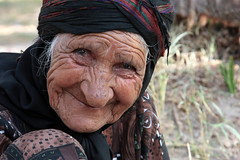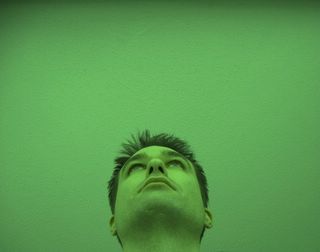I sit alone on the sidewalk outside of the locked house in Balassagyarmat. Mad dog howling of hunger, smaller dogs yapping a refrain, a bloodied wart seeps on my arm, sticky crimson and dirt. I practice the words in Hungarian, “Odlef K_, gone to get the key,” accompanied with gestures as though I am performing a pantomime. I can see myself through a local’s eyes; a foreign mantra of a long haired bleeding American shaman who drawls his words with a palsied tongue.
Church bells are tolling the hour: hear that cacophony of dogs?
We ride the bus from Budapest to Odlef’s house in Balassagyarmat, only a few miles from the Czech border. The bus coasts down winding hills, then chugs up the next incline, working itself to near collapse until a moment of reprieve. I knew the feeling. We pass a hillside crop of berries guarded by scarecrows draped in linen sheets. Like wraiths they are, flapping in the breeze, not just in shapes of human form, but also of underworld creatures, horse-like and spectral. What I wouldn’t give to sneak out to the hill on a moonlit night, with a light breeze bringing the celebration to life, with Bosch holding court at the center of the gathering.
As we near the smaller villages, we come across old peasant women walking along the roadside in their rapid, hunched over gaits. Widowhood veils their faces in black scarves, toothless smiles at nothing but the hot sun beating down on them, their joints creaking on the way to market, alone, only a few vegetables to buy now that the husband has died and the children left. She looks up to passengers in the windows of the bus. I search her face for self-pity but find none here, at least none detectable from the foreigner’s outside observations, wordless and passing.
Wednesday, January 19, 2011
Subscribe to:
Post Comments (Atom)


1 comment:
This lovely picture is actually of an Iranian woman, but her expression captures what I was trying to express in words.
Post a Comment